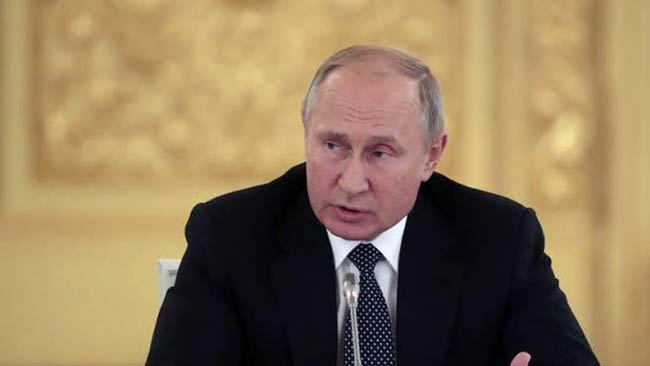
Moscow, 4 December, 2019: A proposed four-year doping ban on Russian athletes would deal a huge new blow to President Vladimir Putin's efforts to use sport to boost the country's prestige and his own reputation.
But experts say the Russian leader could also turn the ban to his advantage -- by portraying it as a politically motivated attempt by the West to once again humiliate the country at the expense of its athletes.
The executive committee of the World Anti-Doping Agency will meet in Paris on December 9 to consider a recommendation for the ban, which would exclude Russian athletes from major sports events including the 2020 Tokyo Olympics and 2022 Beijing Winter Olympics.
A WADA review panel has accused Moscow of falsifying laboratory data handed over to investigators as part of a probe into the doping allegations that have plagued Russia for years.
In power for nearly 20 years, Putin has made sport and healthy living a cornerstone of his popularity and is regularly shown on state television taking part in judo matches or on the ice for hockey games.
His government poured enormous resources into Russia's hosting of the 2014 Sochi Winter Olympics -- the first Olympics in Russia since 1980 -- but the Games were tainted by claims of widespread, state-sponsored doping.
Russian athletes faced a series of bans over the next few years and were forced to participate in the 2018 Pyeongchang Winter Games as neutral competitors.
Redemption seemed on the way with Russia's successful hosting of the 2018 football World Cup, and the reinstatement the same year of its RUSADA anti-doping body.
But if the allegations of tampering with laboratory data are true, Russian authorities have managed to re-ignite the scandal, observers say.
"I fear that we're headed for catastrophe, everything was done too cynically and grossly," Sergei Medvedev, a professor at Moscow's Higher School of Economics, wrote in Facebook post.
The avid sports enthusiast compared the doping scandal to Russia's handling of the assassination attempt of defector Sergei Skripal in England and its denials of supplying separatists in eastern Ukraine with the missile that shot down flight MH17.
In both instances Russia shifted blame with vehement denials and finger-pointing.
But in this case, Medvedev said, Russia will not get away "with a smirk from Putin" and a generation of Russian athletes could be prevented from pursuing their dreams.
Sports commentators were hard on Russian authorities in the wake of the potential ban being announced, with many blaming criminal investigators who were responsible for handling the data.
"I am sure our officials will never recognise that they have disgraced themselves and will never ask for forgiveness," sports commentator Alexei Durnovo told AFP.
"We will never know the names" of those responsible, he added.
Popular sports commentator Vasily Utkin even urged athletes to sue Russian authorities, who he said "were genetically linked to the security services".
At the same time, analysts said the crisis was unlikely to seriously affect Putin's personal popularity.
Denis Volkov, deputy director at pollster Levada, said authorities and state-controlled media would bill the ban as a new move by the West to humiliate Russia -- and that the majority of Russians would accept that line.
"The authorities will use this to their advantage," Volkov told AFP.
"All of this will be interpreted in the sense of the West always against Russia." The question will be whether Russia's athletes buy it.
Maria Lasitskene, a three-time world high jump champion, has already warned she would quit Russia and train elsewhere so as not to miss the Tokyo Olympics.
Along with hurdler Sergey Shubenkov and pole vaulter Anzhelika Sidorova, the 26-year-old missed the Rio Olympics in 2016 because of the doping scandal.
"I do not intend to miss a second Olympics in a row because of some strange people who cannot do their job honestly," Lasitskene has said on Instagram.
Russian rugby star Vasily Artemyev said the country's athletes have been "betrayed".
The Russian men's rugby sevens team is already out of contention for the Tokyo Games but the women's team is still hoping to qualify.
Artemyev, who became a darling of the Rugby World Cup in Japan this year, said Russia needed to dismantle its current sport management model and build a new one from scratch.
"We have to look each other in the eye and develop a new strategic plan," he told AFP.
"We need a new face for Russian sport and it should be sincere.